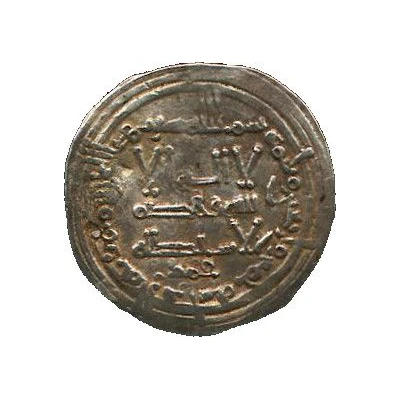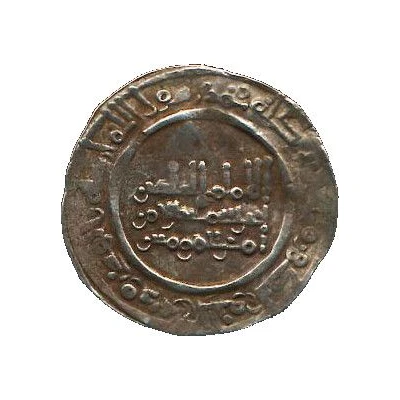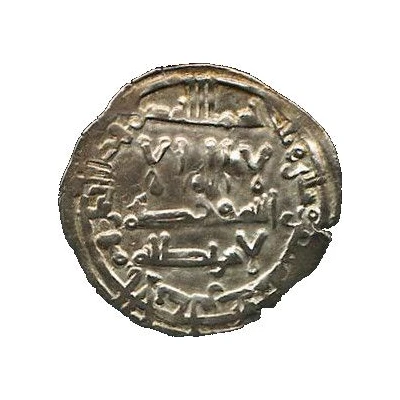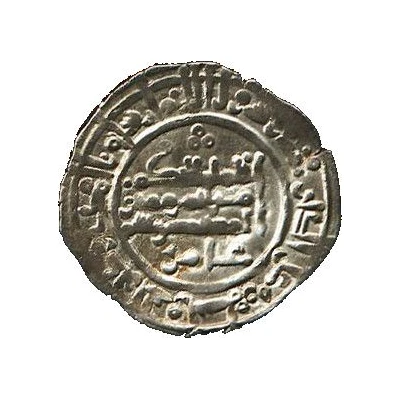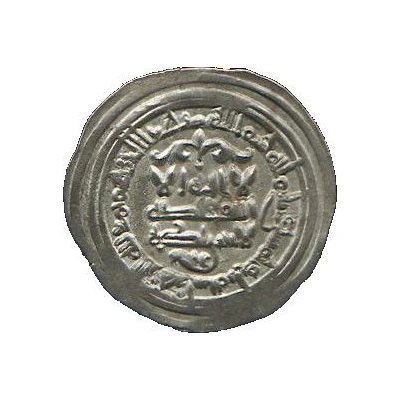
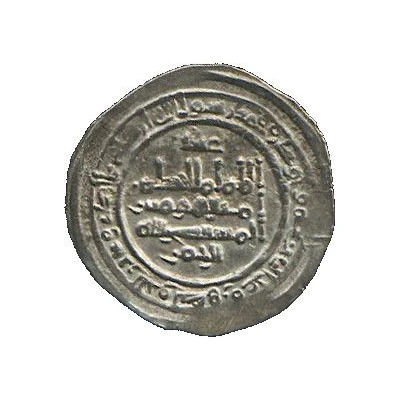

© Tonegawa Collection
Dirham - al-Hakam II Madinat al-Zahra
| Silver | 2.70 g | 23 mm |
| Issuer | Umayyad Caliphate of Córdoba (Córdoba, Al-Andalus and Ceuta) |
|---|---|
| Caliph | Al-Hakam II (الحكم المستنصر بألله) (961-976) |
| Type | Standard circulation coin |
| Years | 350-364 (962-975) |
| Calendar | Islamic (Hijri) |
| Value | 1 Dirham (1⁄15) |
| Currency | Dinar (929-1031) |
| Composition | Silver |
| Weight | 2.70 g |
| Diameter | 23 mm |
| Shape | Round (irregular) |
| Technique | Hammered |
| Demonetized | Yes |
| Updated | 2024-10-05 |
| Numista | N#81268 |
|---|---|
| Rarity index | 80% |
Reverse
Arabic lettering
Script: Arabic
Lettering:
عبد
الامام الحـكم
امـيـر المؤمنين
المستـنـصـر بـالله
الرحمن
بسم الله ضرب هذا الدرهم بالاندلس سنة ثلثين و ثلث مئة محمد رسول الله ارسله بالهدى و دين الحق ليظهره على الدين كله ولو كره المشركون
Translation:
'Abd
Imam Al-Hakam
Commander of the Faithful
Al-Mustansir with Allah
Muhammad is the messenger of God. He sent him with guidance and the true religion to reveal it to all religions even if the polytheists abhor it.
merciful
Comment
The legends vary a bit even in specimen of the same year. To check exactly the variety use the Vives y Escudero catalogue.The name of the monarch is written on the reverse, usually on the left of the second line.
Below is an example of the monarch's name "al-Hakam" on a coin:
The mint and date is written in full, on the marginal legend of the obverse. The script is somewhat calligraphic so not exactly like is presented on the dates in the bottom of this page. Below an example of the mint "Madinat al-Zahra" as seen on a coin is presented:
Interesting fact
One interesting fact about this coin is that it features an inscription in both Arabic and Latin, reflecting the cultural and linguistic diversity of the Umayyad Caliphate of Córdoba. The Arabic inscription includes the name of the caliph, al-Hakam II, and the date of minting, while the Latin inscription includes the name of the city, Madinat al-Zahra, and the year of minting in the Islamic calendar, 350-364 (962-975 CE). This blending of languages and cultures is a hallmark of the Umayyad Caliphate, which was known for its tolerance and acceptance of diverse cultures and religions.
